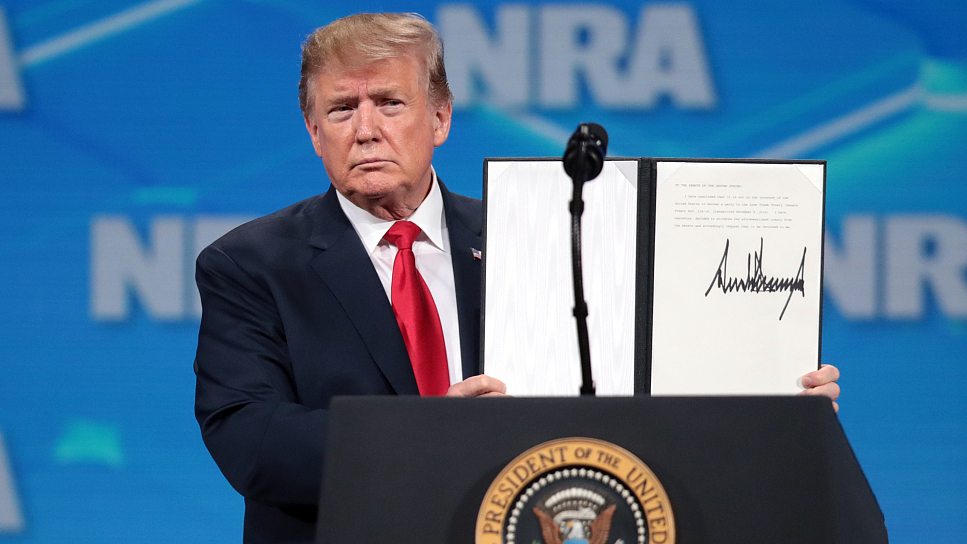
(Photo: CGTN)
Gun violence is hardly news in the United States. While people are still recovering from the losses of the Las Vegas Strip mass shooting and the Stoneman Douglas High School massacre, a synagogue shooting in Poway, California last week left one person dead and three more injured.
For decades, American politicians have been bragging about their country's democratic level, but it turns out that the fundamental human right – to live without fear of a bullet – is a hard-to-reach goal in this traditional bastion of freedom and democracy.
Data explained. Statistics from the Gun Violence Archive shows that more than 16,000 gun-related incidents occurred in the United States in 2019, killing over 4,400 people. Twelve out of 100,000 people died from gun violence in 2017, according to the Center for Disease Control and Prevention.
The figure is astonishing compared with that in other countries: 2.1 deaths per 100,000 people in Canada, 0.3 in the UK and 0.2 in Japan. The US, as the Jama Network found, is one of the six countries responsible for more than half of global gun deaths every year.
The astounding number is not the worst part of the story. Despite widespread calls for an end to the relentless bloodletting, American politicians have shown no intention to toughen gun-related laws, which, according to the Educational Fund to Stop Gun Violence, is closely connected to the carnage.
In his speech at the National Rifle Association (NRA) annual meeting last week, US President Donald Trump announced that his administration "will never ratify" the Arms Trade Treaty (ATT) that is designed to regulate the sale of conventional weapons.
"With this announcement, the Trump administration will reopen the floodgates for arms sales with weakened human rights criteria, which could potentially fuel brutal conflicts, and make everyone less safe," Politico quoted Adotei Akwei from Amnesty International USA.
Undoubtedly, the businessman-turned president is fully aware of the severity of gun violence in the United States. But still, he chose to walk away from the ATT, putting countless American people's lives at risk under the guise of the protection of US sovereignty.
Compared with ordinary people's wellbeing, the president is attaching more importance to his own presidency. Trump's close ties with the NRA, the country's longest-standing civil rights group that has been lobbying for gun rights for decades, does not allow him to strengthen firearm regulations at the sacrifice of the NRA's interests, which have been already profoundly intertwined with the president's political career.
As one of the main supporters for Trump's electoral campaigns, the NRA spent a record of 30 million US dollars on Trump in 2016. In return, Trump resisted signing stricter checks for gun sales into law. Trump is also the first US president since Reagan to address the NRA, according to media reports.
The US bipartisan politics means that the "vote" has an ultimate say in politics. In this context, the president, in many cases, is speaking and acting on behalf of the interest groups supportive of him. Trump's ATT withdrawal, for instance, is blatantly pandering to the NRA in exchange for more money in his campaign for the 2020 election.
As a superpower in the world, the US has been known for its enviable social welfare. However, a slew of gun-related incidents has tremendously diminished the country's image on the global arena. Excuses by American politicians for their inability to toughen gun control legislation have further deteriorated the global image of the US.
The astonishing number of gun deaths and politicians' inertia over gun violence is a shame for the United States as a bastion of human rights. "Make America Great Again" should be more about making the ordinary American's life rather than Trump's political career great again.


